My dear friend Walt Bismarck recently opened an ancient door with a luminous light. What he found on the other side he calls the Other Realm. His essay was as disorienting as it was true: a dimension of feminine sway, surreptitious codes, and emotional gravity that defies the straightforward ambitions of the rational male mind. He walked in swinging a lantern not unlike old Diogenes. I perhaps foolishly, bring a mirror.
We don’t entirely disagree. I just believe you can dance with the ones who vanish if you blink—if you know the rhythm.
If Walt hands you the rules of the Other Realm like a warning label, mine is more of a love letter-though not a naïve one. His piece was a diagnosis: exacting, unsentimental, a frank cri de cœur to the attractive, influential women who act as global tastemakers and pull the strings of status seemingly untrammeled. Walt is a master of parsing the ultimate from the proximate cause, but in doing so, I think he sometimes forgets that the spell only breaks when you say it out loud.
That I suspect is were we part ways.
Where he sees a psychic architecture to be exposed, I see a choreography to be mastered. Feminine influence doesn’t merely deserve critique; it invites understanding, even a measure of reverence. It reigns not through some unassailable monopoly held by UMC women, but because their younger male counterparts have largely abdicated their role in the dance. Bereft of myth, unmoored from the arts, and illiterate in the language of evocative charm, they’ve left the solar half of the consular throne vacant; allowing the lunar aspect to reign unopposed.
And yet, even the moon tires of shining alone. Women who are by nature, twilight, composed mostly of lunar radiance with a trace of the Helios, now find themselves straining toward the sun, stepping into solar shoes not quite made for them. Men, by contrast, should be of the dawn: predominantly solar, touched lightly by the Selene.
The result is not empowerment, but distortion. A burden. And a quiet ache for balance amidst turbulence.
Which brings us to Juliette.
When Brigitte Bardot stepped barefoot onto the sun-bleached streets of Saint Tropez in And God Created Woman, the world saw scandal. But behind the tousled hair and languid gazes was something far more enduring: not just a woman, but an archetype. Not just desire, but design. Juliette isn’t merely responding to male attention. No, she’s orchestrating its rhythm. Softly & Silently. Like the moon pulling at tides, her influence moves without declaration.
She is the lunar principle in its purest form: magnetic, unpredictable, half-veiled. But where the solar note has faded to a slow diminuendo, her movements acquire an eerie autonomy, filling space never meant to be hers alone. It isn’t dominance she wields, but gravity that outmatches its orbiters.
This isn’t a film review. It’s a study and a celebration of seduction, the aesthetics of sway, and the kind of influence that grows more potent for never naming itself.
A Scandalous Arrival on the Cinematic Stage
When And God Created Woman premiered (1956), audiences were riveted—not merely by Brigitte Bardot’s unabashed sensuality but by something far more delicate and subversive. Bardot plays Juliette, a carefree yet enigmatic young woman who drifts through her sun-scorched seaside town of Saint Tropez, seemingly directionless, drawing men into her orbit. Yet beneath her innocent languor lurks a calculated strategy. Juliette isn't merely a sorceress; she's a tactician who quietly reorders her surroundings.
The scandal of the film isn’t just Bardot’s sexuality… it’s that Juliette conceals a powerful aura beneath a veneer of meekness. Her softness isn't a flaw; it's her greatest asset, a subtle weapon disguised as vulnerability. Juliette never openly declares her intentions, preferring instead to let men believe they're rescuing or governing her. The result is an elegant choreography that few recognize until it's too late.
"I didn't know love was a disease"
Waif-Like Allure: Cloak & Dagger
“But I do work. I work at being happy.”
Juliette’s carefully cultivated innocence: barefoot strolls, languorous poses, wide-eyed gazes—provokes protective and possessive instincts from the men around her. Her apparent helplessness is irresistible. Yet this performance isn't passive; it’s carefully orchestrated chaos. Juliette weaponizes softness, creating a dynamic where men are desperate to contain and protect her; though, oblivious to the fact that they're not the saviors but the pawns.
Juliette never openly manipulates; instead, she employs a muted form of psychological aikido, letting male egos trip over themselves. Each man believes he holds the key to her salvation, yet she effortlessly remains out of reach, maintaining plausible deniability as she quietly stokes jealousy and competition.
But beneath that calculated calm, a single faltering glance or unguarded tear could shatter the illusion, thus exposing Juliette’s artifice and sending her carefully spun web of desire crashing down.
The Triad of Desire: Michel, Antoine, Eric
The local men surrounding Juliette each mistakenly believes he understands or is a steward of her:
Michel – Gentle and devoted, Michel marries Juliette to protect her, assuming his kindness and stability will tame her impulsiveness. But Juliette chooses him precisely because his mild temperament grants her the freedom to quietly shape their relationship. Michel’s gentleness ensures his perpetual vulnerability—he confuses softness for strength, never realizing he's surrendered authority without a contest.
Antoine – Michel's assertive older brother sees himself as worldly and commanding, confident in his masculine allure. Yet Juliette subtly dismantles his ego, drawing him close only to frustrate his attempts at mastery. Antoine, all borrowed confidence and brute flair, is destabilized precisely because he plays a game he doesn’t understand—chasing control while telegraphing need.
Eric Carradine – Wealthy and sophisticated, Eric attempts to buy Juliette’s loyalty and freedom. But Juliette skillfully keeps Eric just distant enough to remain desirable, exploiting his certainty that his status guarantees success. Eric, insulated by wealth, assumes predictability is mastery. But Juliette’s rhythm obeys no such logic, and his inability to improvise renders him inert.
Juliette’s mastery lies in magnifying each man’s insecurities, quietly orchestrating a competition none realize they’ve entered.
Choosing Michel: Strategic “Submission”
Juliette’s decision to marry Michel; the seemingly weakest suitor is counterintuitive but deeply strategic. With Michel, she enjoys maximal freedom precisely because he cannot (and will not) impose strict rule. His gentle nature is not a threat but a canvas upon which Juliette’s Indirect gravity can thrive.
Michel’s mildness provides emotional leverage, allowing Juliette to feign vulnerability at strategic moments, tightening her influence over him. Rather than battling an openly authoritative figure like Antoine or a wealth-empowered Eric, Juliette chooses an environment where her vitality remains unchallenged.
In the social context of the 1950s—with rigid expectations of marriage, propriety, and womanly submission. Juliette’s decision to marry a weak suitor becomes more than just a personal whim. Choosing Michel, whose temperament is kinder and less demanding, offers her a safe harbor where otherwise she’d potentially be forced into strict domestic roles. From Juliette’s vantage, his gentle manner means fewer battles over how she spends her time or navigates male attention, freeing her to be as impulsive or mischievous as her nature dictates. Such freedom would be nearly impossible with a more domineering husband and absent a man who truly understands her-Michel must suffice.
Interestingly this calculation also underscores Michel’s own failings. His unwillingness or inability to challenge Juliette’s unrestrained spirit leaves her perpetually testing boundaries. While we can sympathize with a woman seeking room to breathe in a conventional era, Michel’s passivity comes at a cost: he never fully establishes himself as a firm anchor in their marriage, and that vacuum of constancy only inflames Juliette’s restlessness. In this sense, her “safe” choice reflects both practical wisdom on her part and a fragile dynamic that ultimately fails to ground them both.
Juliette as Reimagined Eve
The biblical reference in the film’s title: And God Created Woman—is purposeful, the film invites us to see Juliette as a kind of modern Eve. That very woman who ‘bore’ us consciousness and dared us to taste the knowledge she offers. Just as Eve’s first bite unsettles Eden, Juliette’s innocent allure upends her sleepy seaside town, sending its men scurrying into rivalry and desire. What masquerades as naïveté becomes the forbidden fruit of the heart, a velvet subversion that reshapes her world one captivated glance at a time.
Juliette’s apparent innocence mirrors Eve’s; an innocence masking potent agency. Both Eve and Juliette wield temptation as their tool, reshaping male-dominated realms without openly declaring their intentions.
Femme Fatale in Ingenue’s Clothing
Unlike traditional femme fatales who overtly wield seduction, Juliette’s charm resides in her ambiguity. Her innocent veneer and unpredictable behavior become far more potent than conventional enchantment. Each man thinks he can solve her, yet none recognize her deliberate evasiveness is the very mechanism of her strength.
That’s what they never grasp: her ambiguity isn’t confusion: it’s design. The real language is spoken in gestures, glances, refusals. And most men no longer speak it. They mistake transparency for truth, clarity for strength. They think sincerity is sexy. They forget the difference between candor and elegance.
“I don't know. Or maybe I do. Or maybe not. Don't ask stupid questions.”
She may not wield explicit threats, but her effortless command of male attention mirrors any classic vamp’s allure. Her mercurial deportment keeps the men enthralled, each believing he possesses the key to winning her over. Meanwhile, Juliette quietly manages collisions of jealousy and rivalry that feed her sense of importance and secure her position in the town.
The Mystique of Feigned Weakness
Juliette’s apparent weakness: jobless, dependent, trapped by conventional roles is precisely her strongest position. By performing helplessness convincingly, she compels men to care for and fight over her. Her outbursts and rebellions are followed swiftly by tears and apologies, intensifying their protective instincts. This oscillation maintains her mastery. Thus ensuring she’s never pinned down, always elusive, just slightly out of frame, like a figure in a half-remembered dream.
“It's difficult being happy.”
The Kind of Man Who Could Conquer Her
“Another useless question. You can never answer the truth.”
For all of Juliette’s artful maneuvering and relentless impulse, the film hints at one provocative truth: no man can truly master her unless she chooses to let him. Indeed, the “conquest” she courts is less about brute force or shrewd machinations and more about her own desire to submit. She is evanescent: a woman who thrives exerting her will even while appearing a mere sylph. The only man who could stand a chance at taming her whims would be the one she willingly surrenders to, accepting his terms.
This would demand a man who neither tries to confine her spirit nor panders to it solely out of lust or ego. Such a man would need to recognize her free will, not fear it. In essence, he’d have to inspire her to choose submission, rather than compelling her through societal rules or empty promises of security. And God Created Woman flirts with the possibility of this dynamic, even so, it never shows it fully realized, underlining the point that Juliette’s ultimate “subjugation” remains an unspoken potential, neatly within her discretion. .
The man who might truly match Juliette would not placate, nor would he embody imperiousness, he would simply not move. Not out of indifference, but self-possession. He would see the game, feel its contours, and choose when to play. His sway wouldn’t be displayed, it would be assumed. Juliette would know. And pursue him accordingly.
A Personal Reflection on Social Fluency and Allurement
Observing the landscape today, particularly among young men and women suggests a glaring mismatch. Many women, socially and emotionally adept, sense the hunger for stability that echoes Juliette’s pursuit of freedom within a structure. Yet some men in those circles respond with hollow bravado or thinly veiled hostility, masking their own insecurities beneath a noisy insistence on supremacy. This dynamic isn’t a gender war per se, but a mutual disengagement: women spot the lack of taste or refinement in their would-be guardians, and men double down on resentment masked as moralism or swagger.
And God Created Woman cuts straight to the core of such tensions. Juliette embodies a forceful yet understated potency, quietly steering events without resorting to the same antagonistic bluster that many modern, disaffected young men mistake for strength. Genuine masculine authority, by contrast, doesn’t flinch at the sight of a woman’s cunning. It recognizes that male and female grace can engage in a creative dance, neither side needing to deny the other’s puissance. The film reminds me that, at its best, a masculine perspective once emphasized this reality: men who truly know themselves don’t cower at female influence—they welcome it as part of the game, knowing it can sharpen their edge and draw out a nobler self. And women, too, gain something rarer in return; A man who sees their shadow-play without fear, who meets mystery with structure, and offers a frame within which they can freely, fully play.
It’s the resentment and performative dominance that sour the whole equation. In a sense, Juliette’s story reaffirms the beauty of that older ideal: men and women challenging each other in a dynamic, evolutionary interplay, where each tries to gain the upper hand yet respects the other’s unspoken essence. It’s a dance far more exhilarating than the standstill of mutual suspicion.
(This theme will hopefully be explored in more detail in an upcoming piece for a wonderful magazine. Stay Tuned mes amis!)
The Art of Latent Influence
Juliette isn’t a victim of patriarchy - she’s its shadow puppeteer. Rather than openly contest male authority, she uses a velvet approach reminiscent of historical figures like Cleopatra or Madame de Pompadour: women who operated within male-dominated spheres by quietly molding the tides of influence. The men hold center stage prima facie, while Juliette (like her real-life counterparts) deftly exerts influence behind the scenes. She doesn’t challenge the facade of masculine imperium; she simply positions herself near the throne, guiding its direction in gossamer, often unnoticed ways.
The true scandal of And God Created Woman isn’t Juliette’s sensuality, but her covert agency. She masterfully employs society’s myths about female innocence and helplessness as her greatest assets. Her presence isn’t loud or openly confrontational; it’s quiet.
Juliette embodies a timeless truth: real feminine power moves in whispers, not in declarations feigning the velleity they lack. She doesn’t need brute strength or explicit suzerainty. She simply lets men believe she’s under their supervision, quietly shaping outcomes to suit herself.
The greatest trick Juliette ever pulls is convincing men they were ever truly in command. In doing so, she reveals a hidden strength that reshapes the rules of engagement without ever declaring war—she dares a man of true honor & bearing to stand in her glow, embracing her caprices as the very spark of life.
“All the future does is spoil the present.”
Indeed. And sometimes, the future belongs to those who pretend not to know what they’re doing until it’s already done.
And if a man notices? If he sees through the haze and meets her glance with a knowing stillness?
She might smile for once, without guile.
Not because he’s won, but because he understands.







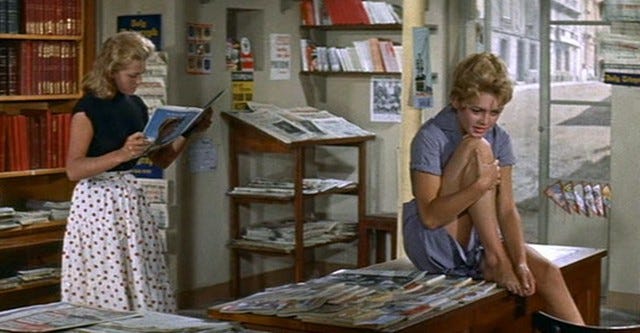
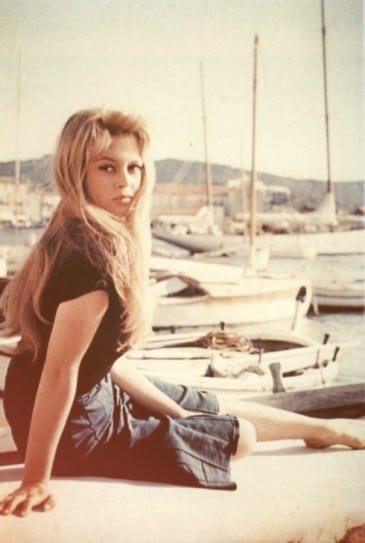
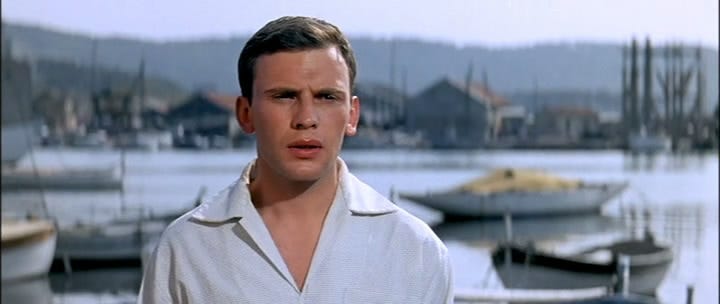


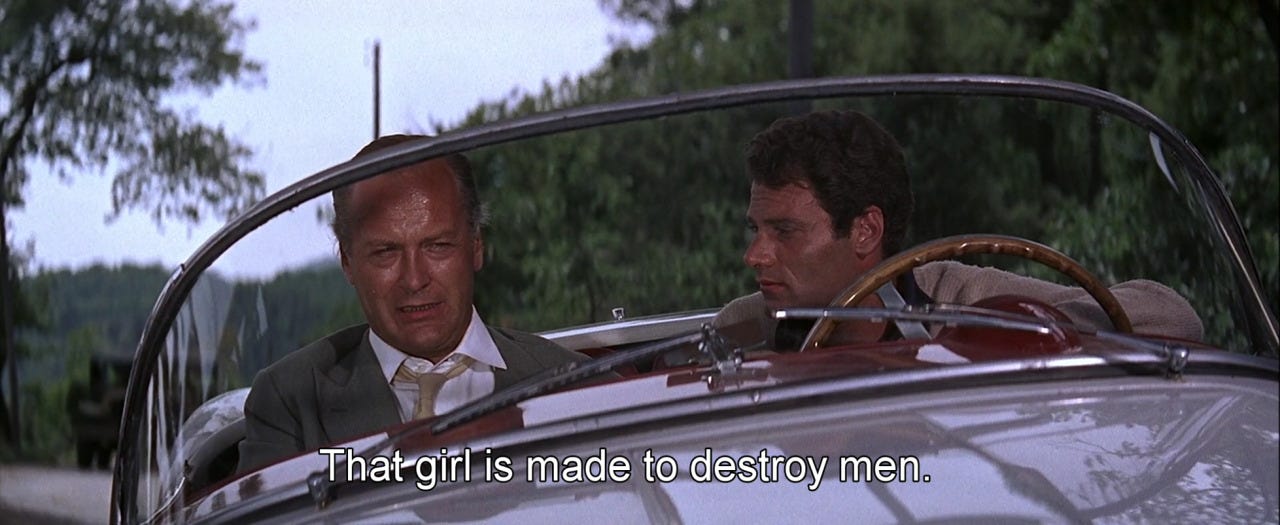
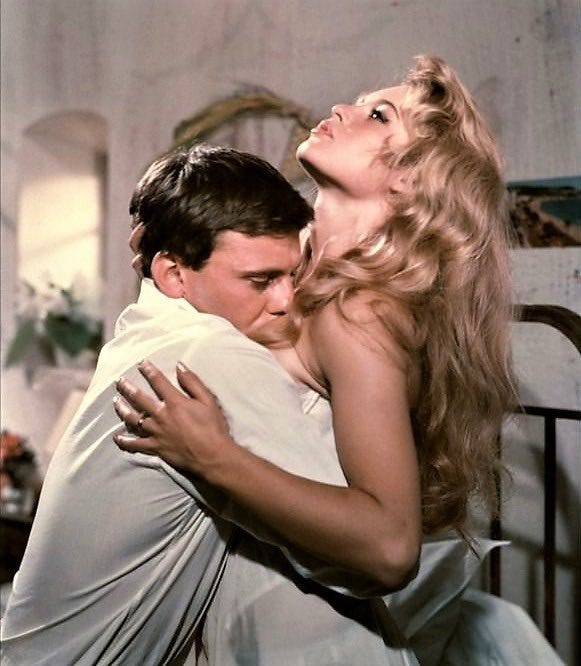





I'm somewhat sceptical of guys trying to apologize for female behavior since they're almost always trying to simp for women's approval but you did a good job of threading a needle of celebration, reverence, and understanding without being to wanting.
Really loved this. you capture something most people miss about seduction and influence, it’s not about deception. it’s about rhythm and quiet control. I liked how you contrast your view with Walt’s without making it into a fight, just feels like two sides of a deeper truth. The point about Juliete using softness as a weapon without ever really having to declare herself really stuck with me. It rings true today esp now when everything feels so loud and like its a performance. Excited to see what you do next.